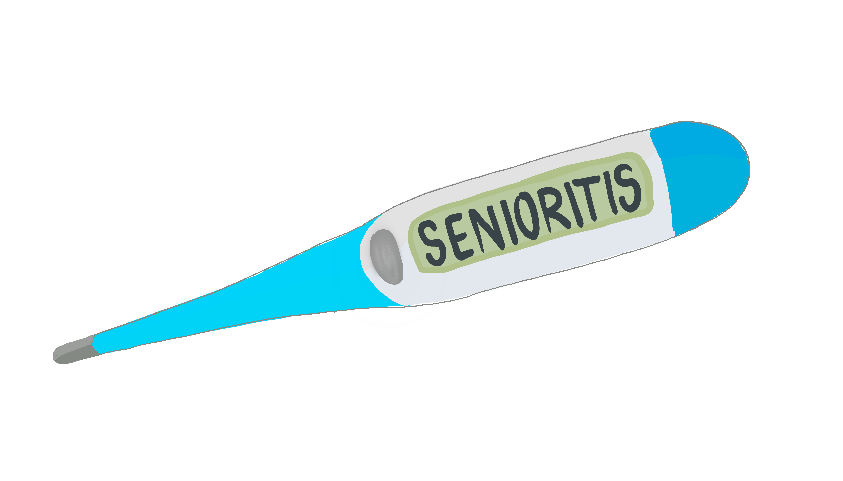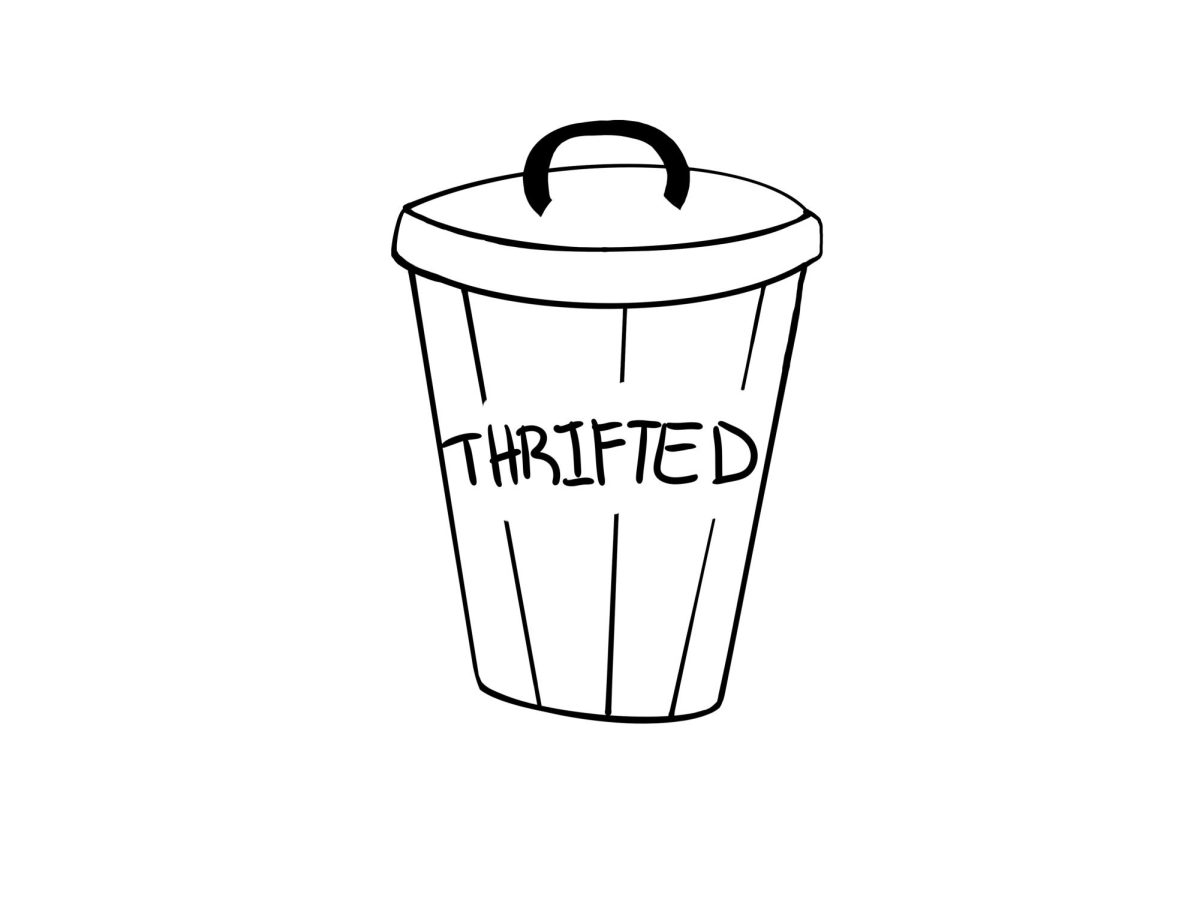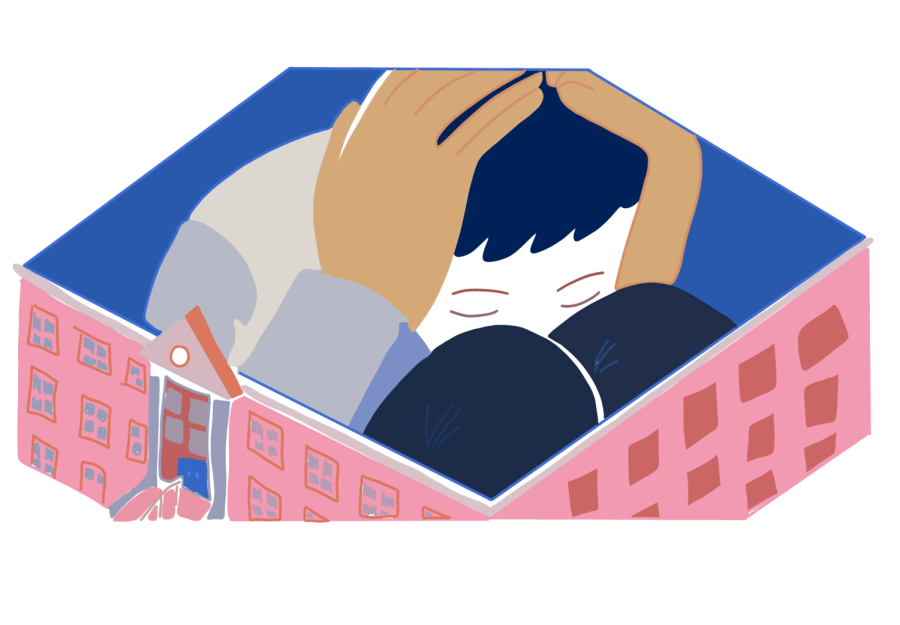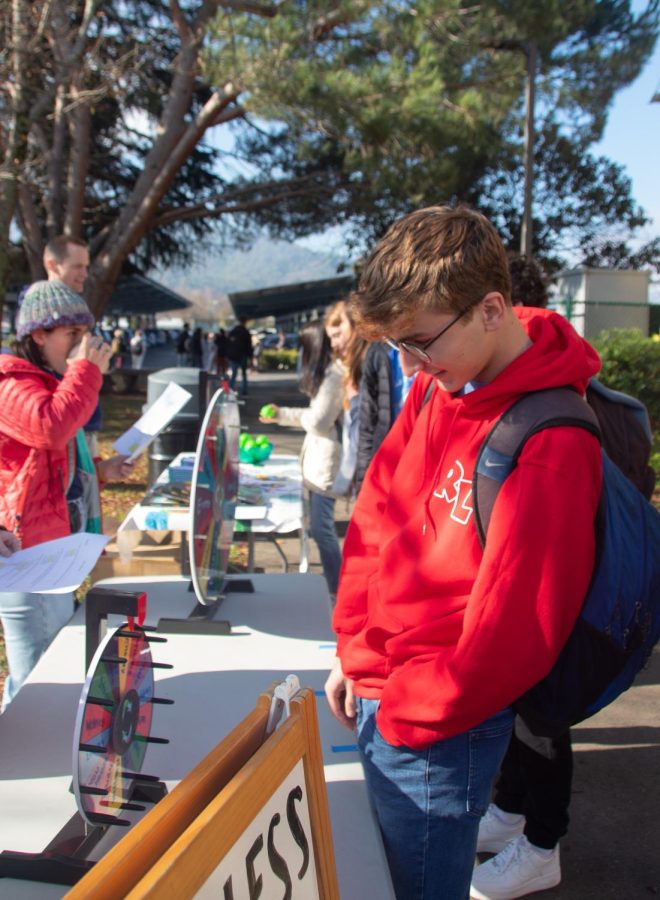
A smile sneaks upon junior Alex Portillo’s face when he sees his younger brother, Andreas, after a long day at school and track practice. Andreas gives Alex a giant embrace, all the while still clenching onto his Spiderman and Ironman action figures. Alex heads to his room as Andreas once again immerses himself with his action figures.
Across town in the Barry household, junior Shaya Barry trudges into her house in Tiburon after participating in a grueling soccer practice. Instantly, she heads for the fridge, which is conveniently loaded with her families refreshing necessities: Juice Squeeze, milk, and her dad’s immense stash of Ben and Jerry’s ice cream. Her older sister, Brittany, captivated by the television show “Vampire Diaries,” breaks her gaze for an instant to ask for a Juice Squeeze and to consult Shaya about an outfit choice.
Elsewhere, senior Alex Herz enters his house in West Corte Madera after a long day at school, petting his two black labs and tripping over his younger brother Griffin’s large collection of Hot Wheels race cars, most of which Griffin has named himself. Laughing, Alex ruffles Griffin’s hair, and Griffin reciprocates with a playful shove as Alex continues to his bedroom. Moments later, sophomore Jenna Herz walks through the front door, and is met with a warm embrace and a casual, “Hi Jenna! How was your day? I love you.” from Griffin.
These three Redwood students all live in typical households, with one exception: All of them have a sibling with a disability. Each student said their siblings have taught them to be more accepting of people’s circumstances and sensitive to their situations.
***
Alex Portillo longed for a younger brother at the age of four. Five years later, when Alex was nine, Andreas Portillo was born.
“When I finally got [a younger brother], I was the happiest child on the planet. I had never been so happy,” Alex said.
Andreas, a current second grader at Neil Cummings, was diagnosed at the age of five with a mild form of autism, formally known as Pervasive Developmental Disorder Not Otherwise Specified (PDD-NOS), when Alex’s family noticed Andreas’ speech delay.
Common symptoms of PDD-NOS include communication and social difficulties, as well as unusual play with toys and other objects.
“It was difficult when we heard the news of his diagnosis. So, my parents and I educated ourselves on Autism,” Alex said. “The goal was to align Andreas with the best learning environment for him.”
The Portillo family constantly strives to discover and utilize new learning strategies for Andreas, Alex said.
“Because of his speech delay and our dependence on language for learning, we are motivated to look for alternative ways to teach him,” Alex said. “He loves Legos, so we periodically get him complicated sets. Sometimes we use the pieces for other counting or problem solving games.”
According to Alex, Andreas is much like a typical elementary school student in that he has many friends, plays games, watches cartoons, and always wants to eat candy. However, Alex has also found that many of Andreas’s peers can be insensitive to his disability.
“Little kids [can be] bullies and every kid goes through a stage with bullies,” Alex said. “It’s a bit tougher with Andreas because of the communication issues coupled with the fact that he just wants to play all the time with anyone.”
Alex said he has become more aware of how offensive certain language can be.
“When [people make crude remarks], I try to remind others that people with disabilities are all around us. That usually does the trick,” Alex said.
According to Alex, everyone who is a part of Andreas’ life can’t help but be touched by his affectionate and positive energy.
“He is the happiest person I’ve ever met and brightens my day every day,” Alex said.
***
Similar to Alex Portillo’s brother, Shaya Barry’s older sister Brittany has a speech disability formally known as Dysarthria.
Dysarthria is a motor speech disorder in which the muscles used for speech production, including the lips, tongue, vocal folds, and diaphragm, have impaired movement. Although each diagnosed case varies in severity of speech characteristics, Brittany’s symptoms include limited tongue, lip and jaw movement, as well as mumbled speech that can be difficult to understand.
Brittany, who graduated from Redwood last year, is now currently enrolled at Gallaudet University as a freshman, which is an international school for the deaf and hard of hearing.
According to Shaya, Brittany was often frustrated while attending Redwood because she could not fully relate to typical students or severely disabled students.
“She isn’t mentally disabled, so she’s very aware socially and academically,” Shaya said. “It was hard for her to connect with people who could communicate typically, but it was also difficult for her to connect with people who had large disabilities… This made her feel like she was stuck in the middle of two worlds which sometimes made her feel alone.”

Though Brittany is able to hear, her primary means of communication is through American Sign Language. Unlike most deaf individuals, Brittany does not depend on interpreters for comprehension.
Instead, Brittany finds her largest struggles come from dealing with people who do not have the patience or discipline required to understand her, Shaya said.
Shaya said that Brittany’s inability to fully convey her thoughts through speech has resulted in a more tense home environment.
“Since we’re not fluent [in sign language], she might get frustrated or there might be fights over it,” Shaya said.
In this way, Shaya’s household differs from her peers due to this communication barrier. However, Shaya said because of this challenge with her sister she has learned to be more aware and open to people.
“She has impacted my life by teaching me not to be afraid to stand up for people and has showed me that even though people may appear different people should always be accepting and understand each other,” Shaya said.
According to Shaya, her mother understands through Brittany that everyone learns in different ways.
“My sister had a lot of learning aids, so for me she has made sure I’ve had help too, because my mom understands [school] can be harder for certain people, so that’s helped shape me,” Shaya said.
***
Likewise, Alex and Jenna Herz said they feel very impacted by their younger brother, Griffin, who was diagnosed with Trisomy 21, more commonly known as Down syndrome.
Trisomy 21 is determined by an extra twenty-first chromosome in the DNA, which causes facial deformities, slower learning processes, and stunted development. Alex said his family feels very blessed that Griffin is high functioning.
“Our lives have only been changed for the better by having Griffin,” Alex said. “I personally treat him like I would any normal brother.”

At the same time, Alex maintains an underlying knowledge that he has to be more sensitive and open with Griffin.
“If he messes up doing something you didn’t ask him to do, there’s more of a capacity for understanding there than there would be for those without a disability, because it takes him a while longer to learn things,” Alex said.
Alex believes this sensitivity is a common trend present in the homes of all families with disabled kids.
“I think in general, kids who have siblings with disabilities and adults who work with children with disabilities tend to have more of a capacity for patience and kindness and empathy than people who don’t,” Alex said.
Jenna said that Griffin has taught her patience and acceptance.
“He has taught me how to be accepting of everyone no matter who you are or what it is that might make you stand out in the crowd,” she said.
Alex said his parents have become much more perceptive individuals after having contributed nearly 14 years of time, money, and attention to Griffin to make sure he is maturing to become the best person he can be through therapies and close care.
“Generally, [my parents] are more empathetic and understanding towards their children and towards other children,” Alex said. “Having Griffin has just made them more aware of what their roles as parents really are.”
Jenna believes Griffin has greatly contributed to their household environment.
“We have a very positive household. When I’m having a bad day and come home, my family is really good at cheering me up, especially Griffin,” Jenna said. “Because of all the challenges we had to go through with dealing with him and everything we have been through, I think that we just know how to enjoy the little things a little more.”
Alex said Griffin is much like a typical teenage boy in that he rarely displays his affection for his older brother openly. Griffin does, however, occasionally make it clear that he cares.
On Alex’s 18th birthday, he, Griffin, and their cousin played at their local park, and at the end of the day Griffin bashfully announced, “Alex, I had a really great day with you.” Although the encounter was brief and straightforward, it deeply resonated with Alex.
“I know he loves me. I’m grateful that he has the intellectual capacity to be subtle,” Alex said.
Alex believes another one of Griffin’s special attributes is his hilarious personality.
“Griffin loves attention,” Alex said. “He likes to dance in front of people, which kind of embarrasses us sometimes.”
Likewise, Griffin’s common teenage boy tendencies are supported by his specific interests, which, according to Alex, simply include, “Hot Wheels, women, basketball, women, video games, and women. And girls too!”
While the Herz family is extremely sensitive and appreciative of people with disabilities, Alex said not everyone is as mindful.
“People making derogatory comments about people with disabilities is one of the very few things that can throw me off more than anything else. It really grinds my gears,” Alex said. “A lot of people who make those kind of jokes have no idea what it takes emotionally, physically, and financially to raise a child with disabilities and to be a sibling of a child with disabilities.”
Though Alex would like to believe that the usage of derogatory terms in everyday jargon is falling out of fashion, he acknowledges that many people are unaware that derogatory terms, such as the “R” word, are insulting.
“My only regret would be the number of times I haven’t said anything when I’ve clearly heard it and I’ve pretended not to hear it,” Alex said.
Alex said he tries to make people more aware of the fact that their language can greatly impact others. One example of this occurred during his freshman year when he was walking through the hallway with Lucas, an autistic student.
“Some kids were making fun of him in the corner, so I stopped, turned around, and walked over to them and said, ‘Gentlemen, can we find something better to do with our lunch hour than make fun of people who can’t defend themselves?’ I wish I could do that more often, but some days I don’t have the capacity for it,” Alex said.
Alex said he feels he has a heightened responsibility to take a stand against bullying.
“What I’ll say is something along the lines of, ‘You may not know this, but that word is actually really offensive to people who have mental disabilities. I would appreciate it if you take it into consideration that there are people like me out there who have siblings with disabilities and using that word can be offensive. You never know when you’re offending somebody,’” Alex said.
Similarly, Jenna said she feels an equal sense of responsibility to interject on people’s conversations when she catches them using the “R” word or other offensive language.
“When people use that word… they are not purposely meaning to be offensive to people with disabilities or special needs. But because that word was used for so long in that way it just hits me the wrong way,” Jenna said.
In that sense, the Herz family is grateful that Griffin has encouraged them to be proactive and mindful individuals.
“There’s never a day that goes by when I don’t look at him and feel a great sense of pride and admiration, which is not a bad thing to feel on a daily basis,” Alex said.
[vimeo id=”https://vimeo.com/79645461 “]























